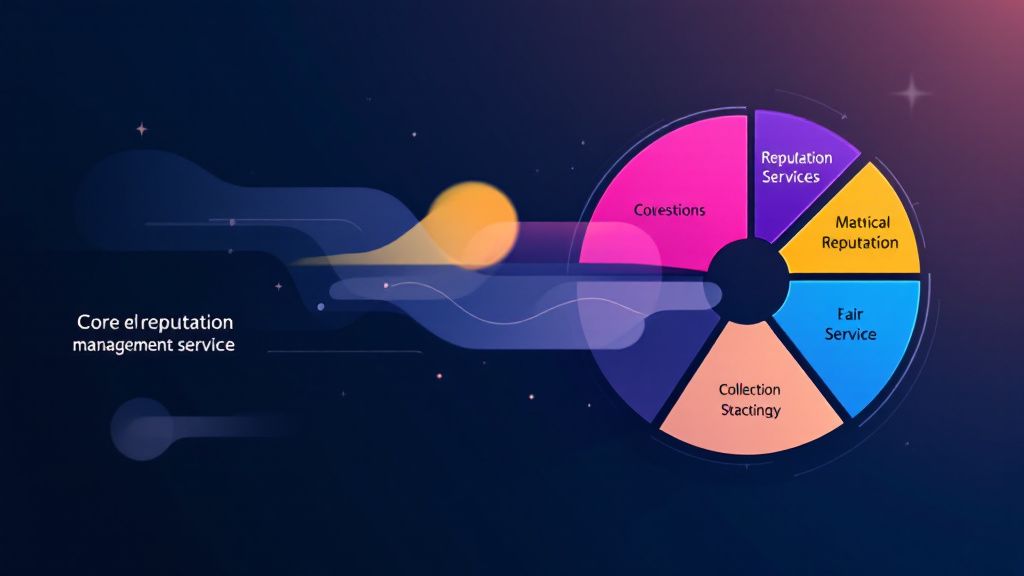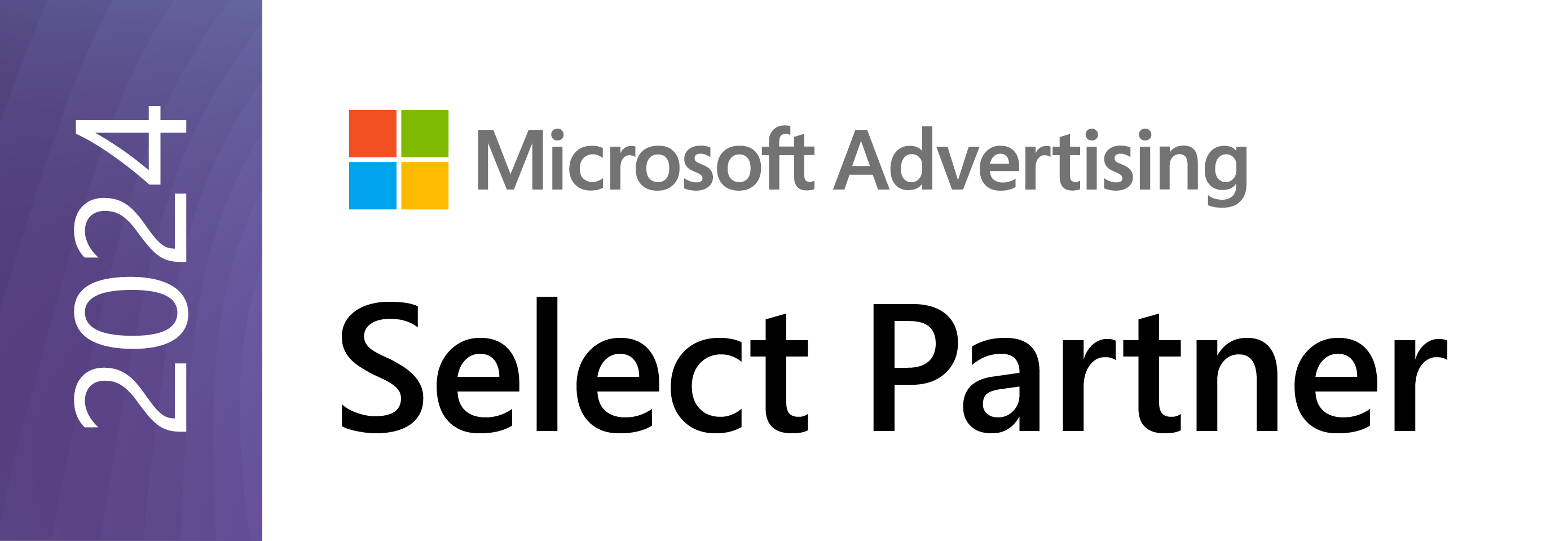
Elevating Your Brand’s Perception with Reputation Management
Harness the power of reputation management to elevate your brand’s perception, transforming it from ordinary to exceptional. By employing reputation monitoring services, you proactively manage the way your brand is viewed by the world. This process involves keeping a keen eye on public opinion and addressing potential issues before they escalate. With brand reputation management, you ensure that your brand always puts its best foot forward. Through strategic responses and an unwavering commitment to excellence, you mold public sentiment, build trust, and enhance credibility. This not only safeguards your brand’s standing but also fosters a positive image that attracts new customers and retains existing ones.

Understanding the Concept of Reputation Management
Reputation management is a strategic approach that focuses on shaping public perception by carefully monitoring and influencing the feedback your brand receives. One of the significant challenges in reputation management is the sheer volume of information and opinions circulating across digital platforms. Misinformation or negative reviews can spread rapidly, affecting how your brand is perceived. This issue can be addressed through effective reputation monitoring services, which allow you to swiftly identify and rectify discrepancies, ensuring your brand maintains a positive image.
Utilizing reputation management strategies involves not only responding to unfavorable content but also actively promoting positive stories and achievements. By doing so, you highlight your brand’s strengths, allowing you to gain a competitive edge in the marketplace. Reputation management isn’t just about damage control; it’s an ongoing effort to cultivate a credible and admirable brand presence. Through consistent engagement with your audience, you nurture loyalty and trust, enabling your brand to thrive and remain resilient amidst a constantly evolving landscape.

Key Strategies for Effective Reputation Management
To effectively manage your brand’s reputation, start by actively monitoring online conversations and reviews. This continuous attention allows you to promptly address any issues that arise, demonstrating to your audience that you value their feedback. Proactive reputation monitoring services serve as the backbone of this approach, ensuring that no negative comment goes unnoticed and positive interactions are highlighted.
Crafting a robust content strategy is vital for enhancing brand perception. By consistently delivering valuable and engaging content, you can steer public conversation in a favorable direction. Looking at reputation management through the lens of storytelling, we can see that compelling narratives not only captivate your audience but also reinforce your brand’s ethos and value proposition.
Engagement plays a crucial role in reputation management. Responding to both positive and negative feedback shows that you are not just a brand but a responsive entity that listens and cares. Open communication channels encourage dialogue with your audience, fostering a sense of community and trust.
Building relationships with influencers and brand advocates can amplify your positive reputation. When credible voices speak highly of your brand, it fortifies your standing in the marketplace. By leveraging these relationships, you can extend your reach and reinforce your brand’s credibility.

Core Elements of a Reputation Management Service
What constitutes the backbone of an effective reputation management service? At its core, reputation management revolves around the proactive monitoring of your brand’s presence across various platforms. By using advanced reputation monitoring services, you systematically track mentions, reviews, and sentiments linked to your brand. This meticulous observation allows you to react swiftly and positively to any public perception changes.
Content creation plays a pivotal role in shaping and sustaining your brand’s reputation. Producing high-quality, consistent content helps narrate your brand’s story in alignment with your ethos and principles. Well-crafted blogs, videos, and social media posts enhance your credibility and engage your audience, thus supporting an overarching strategy for brand reputation management that reinforces trust and authority.
Managing customer feedback effectively is another critical element. Promptly addressing complaints or feedback demonstrates your commitment to customer satisfaction. Actively engaging with your audience through both favorable and critical interactions solidifies your reputation as a customer-centric brand, fostering loyalty and trust over time.
Online reputation is fortified by cultivating meaningful relationships with stakeholders, including influencers and industry leaders. Collaborating with these key figures enhances your brand’s reputation as their endorsements carry significant weight. Their support plays a crucial role in extending your brand’s reach and cementing your image in a competitive marketplace.
How does brand reputation management impact your success? By implementing robust strategies, your brand not only withstands challenges but thrives in them, bolstering its standing and paving the way for sustainable growth. Emphasizing reputation management ensures your brand remains resilient and consistently appealing to both current and potential customers.

Choosing the Right Reputation Management Firm
Selecting the right reputation management firm is crucial to your brand’s success. You need a partner who aligns with your business goals and understands your industry. Look for firms that offer comprehensive services, including advanced reputation monitoring services and effective brand reputation management strategies. Their ability to tailor solutions to your specific needs will determine the effectiveness of your reputation management efforts.
One of the most frequently asked questions about choosing a firm is how to gauge their expertise and reliability. Here’s the answer: evaluate their track record and client testimonials. A reputable firm will have a proven history of managing complex reputations and can provide real-life examples of their success. This insight offers assurance that they can handle potential challenges that arise during the process.
Communication is a vital aspect of selecting a firm. The right agency will maintain open lines of communication, keeping you informed and involved throughout every step of the process. Regular updates and transparent reporting not only build trust but also provide you with valuable insights into the evolving perception of your brand.
Cost is also a significant consideration when choosing a reputation management firm. Assess whether their pricing aligns with your budget and the value of services offered. Cheaper services might not always deliver the comprehensive solutions you need, while a higher investment could yield significant returns in brand perception and customer trust.

Tools and Technologies Used in Reputation Management
In the realm of reputation management, leveraging the right tools and technologies is essential for success. Advanced reputation monitoring services utilize sophisticated algorithms to track your brand’s online presence across various digital platforms. These tools provide real-time alerts and data analysis, enabling you to respond promptly to any changes in public perception.
To truly understand the effectiveness of these tools, you need to shift your mindset from reactive to proactive management. Moving from a traditional approach of only addressing issues after they occur to continuously monitoring and influencing perceptions is crucial. This new perspective focuses on utilizing data analytics and sentiment analysis to anticipate trends and shape your brand’s reputation positively.
Social media monitoring tools are invaluable in reputation management, allowing you to gauge public sentiment and engage with your audience effectively. These platforms enable you to track mentions, identify influential voices, and swiftly address feedback, enhancing your brand reputation management strategy. By staying connected, you maintain a pulse on public opinion and drive positive interactions.
Content management systems also play a critical role in reputation management by coordinating and distributing consistent messaging. They ensure your brand’s narrative aligns with your values, which is communicated clearly through various channels. This cohesive messaging strategy strengthens your brand’s image and reinforces trust among your audience.

Real-Life Outcomes: Reputation Management Success Stories
Reputation management success stories abound, showcasing the transformative power of these services. For example, consider a restaurant chain that faced a significant public relations crisis. By implementing effective reputation management strategies, they turned negative press into positive buzz. Through the use of reputation monitoring services, they swiftly addressed customer complaints and revamped their image, attracting a wider array of patrons and boosting their credibility.
While many believe that reputation issues are irreparable, there’s a strong case for the rejuvenating impact of targeted management efforts. A well-known technology company experienced backlash over a product failure. Instead of capitulating to criticism, they harnessed brand reputation management tactics to own their narrative. Transparency and openness won back consumer trust, demonstrating the power of making a genuine connection with audiences.
Even established brands can benefit from reputation management. A global shipping leader once struggled with environmental concerns. By integrating sustainability into their business model and publicizing those efforts, they significantly improved public perception. Their proactive approach and clear communication pledged genuine commitment, proving how reputation management can redefine a company’s legacy.
These stories illustrate that, even amidst adversity, thoughtful reputation management can pivot a brand from potential reputational damage to success, reinforcing the value of proactive strategies and transparent communication.



